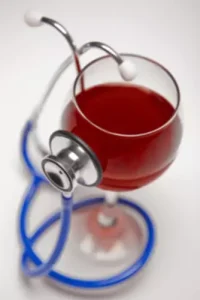
If your body can’t do this well enough, you will have a reaction. Alcoholic beverages are made from complex mixtures of grains, chemicals, and preservatives that your body needs to break down. Alcohol-induced respiratory symptoms are common in patients with aspirin exacerbated respiratory disease. can you be allergic to champagne By Elizabeth PrattPratt is a freelance medical and mental health journalist with a master’s degree in health communication. In the event of anaphylaxis, call an ambulance or go to the emergency room immediately. Fining agents are supposed to be removed from wine during the winemaking process.
Alcohol Allergy
Some varieties of gin and vodka, as well as ‘natural wines’ are low in sulphites. However, asthma experts warn sufferers to choose their drinks carefully, because even low-sulphite wines will contain some sulphites. Anyone who drinks in excess will likely experience these adverse effects to some extent.
- People with alcohol intolerance may notice one or more of these symptoms after taking a few sips of alcohol.
- Unless gluten-containing flavorings are added after the distillation process, distilled spirits are considered gluten-free.
- It’s possible to be allergic to alcohol, but it’s not very common.
- Our recommendation at PureWine is to avoid the wine which caused the allergic response in the first place.
- Symptoms of wine allergies can include headaches, nasal congestion, skin rashes, and gastrointestinal discomfort.
Wine Spectator Magazine
To prevent future allergic reactions, it is recommended to avoid alcohol entirely if you have confirmed alcohol allergies. There is a common misconception that the sulfites in wine are the primary cause of allergic reactions. While sulfites can trigger asthma symptoms in some people, they are not often the primary source of wine allergies. In fact, histamines and proteins in the wine are more likely to cause allergic responses. Understanding the specific triggers for wine allergies can help individuals identify and avoid the types of wine that may cause adverse reactions. The specific production process and ingredients used in champagne can result in higher levels of histamines and sulfites, leading to allergic reactions that may not occur with other types of wine.

Is it possible to be allergic to alcohol?

When the immune system views something (an allergen) as a threat, it attempts to defend the body. When it does this, antibodies known as immunoglobulin E (IgE) react with cells to cause an allergic reaction. If you know the component in wine that you’re allergic to, you may be able to avoid it. For example, this may be possible if you have a reaction to a specific type of wine or grape. The blood will then be sent to a laboratory to test for allergy-related antibodies called IgE antibodies.
Alcohol intolerance
However, a person is usually allergic or intolerant to certain ingredients in the drink, rather than the alcohol itself. An allergic reaction might not occur the first time a person encounters an allergen. However, they can come on suddenly, and a person could develop an alcohol allergy at any point in their life. Unfortunately, nothing can prevent reactions to alcohol or ingredients in alcoholic beverages. To avoid a reaction, avoid alcohol or the particular substance that causes your reaction. In some cases, reactions can be triggered by a true allergy to a grain such as corn, wheat or rye or to another substance in alcoholic beverages.
- Therefore, it’s possible to have an allergy to both beer and wine.
- For example, this may be possible if you have a reaction to a specific type of wine or grape.
- Often, what people consider to be an alcohol allergy is, in fact, alcohol intolerance.
- Symptoms commonly experienced after a glass or two of a full-bodied red wine include headache, stuffy nose, skin flushing.
- It can also treat anaphylactic shock and symptoms before they progress to anaphylactic shock.
- These compounds are often added to beer and wine to limit the growth of yeast and act as a preservative.
- Although red wine is especially high in histamines, all alcoholic beverages have high levels of histamine.
Alcohol sometimes worsens symptoms in people with hives (urticaria) and occasionally alcohol can trigger hives. As with more serious allergic reactions, the mechanism is unclear. Depending on the type of food intolerance you have, you may be able to eat small amounts of problem foods without a reaction. By contrast, if you have a true food allergy, even a tiny amount of the food may trigger an allergic reaction.


Allergy testing can also tell you if you have an allergy to another component of alcoholic beverages like wheat, grapes, or barley. It’s possible to be allergic to alcohol, but it’s not very common. Most people who think they have an alcohol allergy actually have an alcohol intolerance (also called acute alcohol sensitivity).

